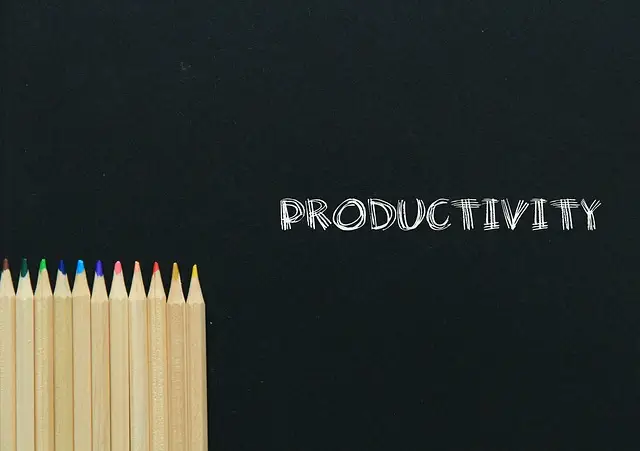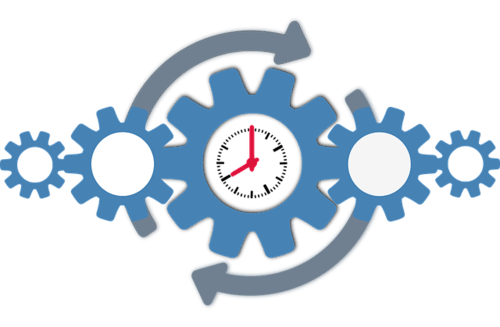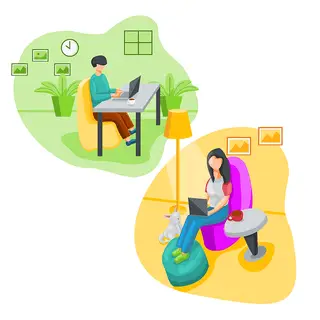
Overview: Focus on productivity strategies tailored for PhD students who often juggle research, teaching, coursework, and personal commitments. It could cover time management, staying organized, and maintaining a healthy work-life balance.
Key Points:
- Effective time management techniques (e.g., Pomodoro, task batching).
- Tools and apps that boost productivity and organization.
- Tips for maintaining motivation and avoiding procrastination.
Embarking on a PhD is a rewarding but challenging journey that demands exceptional time management and productivity skills. PhD students often juggle research, writing, teaching, coursework, and personal commitments, making it easy to feel overwhelmed. The unstructured nature of PhD work can lead to procrastination and difficulty maintaining focus on long-term projects. However, with the right strategies, you can boost your productivity, manage your time effectively, and maintain a healthy work-life balance. Here are some productivity hacks tailored for PhD students to help you navigate this demanding journey.
Understanding the Unique Productivity Challenges of a PhD
The PhD journey is unlike any other academic experience. Unlike structured programs with regular assignments and exams, PhD work is often self-directed. This autonomy can be liberating but also daunting, as it requires you to set your own goals, manage your own time, and hold yourself accountable. The lack of clear, short-term deadlines can lead to procrastination, and the pressure to produce high-quality research can cause perfectionism, which further stalls progress.
Recognizing these challenges is the first step toward overcoming them. The key is to develop a toolkit of productivity strategies that work for you, keeping in mind that it’s a process of trial and error to find what fits your work style and personal life.


Time Management Techniques
1. The Pomodoro Technique: The Pomodoro Technique is a time management method that breaks work into short, focused intervals called “Pomodoros” (usually 25 minutes), followed by a short break. This approach helps maintain focus and prevents burnout by ensuring that you take regular breaks. After completing four Pomodoros, take a longer break of 15-30 minutes.
How to Implement:
- Set a timer for 25 minutes and work on a single task without distractions.
- When the timer goes off, take a 5-minute break. Use this time to stretch, grab a snack, or step outside for some fresh air.
- Repeat the process, and after four Pomodoros, take a longer break.
2. Task Batching: Task batching involves grouping similar tasks together to complete them in a dedicated block of time. This technique reduces the cognitive load of switching between different types of work and can significantly boost efficiency.
Examples of Task Batching:
- Dedicate specific times of the day to check and respond to emails, rather than doing so sporadically throughout the day.
- Batch writing tasks, such as drafting multiple sections of your dissertation in one session or scheduling a full afternoon for literature review.
- Group administrative tasks, such as scheduling meetings, updating your calendar, and organizing your workspace.
3. Setting SMART Goals: SMART goals are Specific, Measurable, Achievable, Relevant, and Time-bound. Setting SMART goals helps break down large projects into smaller, more manageable tasks, providing a clear roadmap of what needs to be done.
How to Set SMART Goals:
- Specific: Clearly define what you want to achieve (e.g., “Write the introduction section of Chapter 3”).
- Measurable: Ensure you can track your progress (e.g., “Write 1,000 words by the end of the day”).
- Achievable: Set realistic goals that are within your capabilities and resources.
- Relevant: Make sure your goals align with your overall objectives (e.g., advancing your dissertation progress).
- Time-bound: Set a deadline for when you want to achieve the goal (e.g., “Complete by Friday”).
Tools and Apps for Productivity
Leveraging the right tools can make a big difference in managing your PhD workload. Here are some useful apps and tools that can help you stay organized and on track:
1. Trello or Asana: These project management tools help you organize tasks into boards or lists, allowing you to visually track your progress. Use Trello or Asana to manage your research timeline, keep track of deadlines, and break down large tasks into smaller steps.
2. Zotero or Mendeley: Reference management tools like Zotero and Mendeley are essential for managing citations and organizing your literature. They save time by automatically generating citations and bibliographies, and they help keep all your research articles in one place.
3. Focus Apps (e.g., Forest, Focus@Will): Focus apps can help reduce distractions and maintain concentration. Apps like Forest encourage you to stay off your phone by growing a virtual tree while you work, whereas Focus@Will offers music tracks scientifically designed to improve concentration.
4. Note-Taking Tools (e.g., Evernote, Notion): These tools help you keep track of ideas, meeting notes, and research insights in a structured way. They allow you to create notebooks, add tags for easy searching, and sync your notes across devices.


Maintaining Motivation and Overcoming Procrastination
Staying motivated throughout a long PhD program can be challenging, especially when progress feels slow or setbacks occur. Here are some tips to help you maintain motivation and overcome procrastination:
1. Identify Procrastination Triggers: Understanding why you procrastinate can help you address the root cause. Common triggers include fear of failure, feeling overwhelmed, or not knowing where to start. Break tasks down into smaller steps, and start with the easiest one to build momentum.
2. Create a Motivating Environment: Your workspace plays a significant role in your productivity. Keep your workspace tidy, personalize it with items that inspire you, and ensure it’s free from distractions. Natural light, a comfortable chair, and a clutter-free desk can make a big difference.
3. Use Accountability Partners: Having someone to hold you accountable can increase your commitment to your goals. Find a peer or join a study group where you can regularly share your progress and set goals together. Knowing that someone else is aware of your commitments can provide that extra push to stay on track.
Balancing Work and Personal Life
Maintaining a work-life balance is crucial to prevent burnout and sustain productivity over the long term. Here are some strategies to help you integrate self-care and personal time into your busy schedule:
1. Schedule Downtime: Just as you schedule your work tasks, schedule time for relaxation and activities that bring you joy. This could be a weekly hobby, social activities, or simply time to unwind.
2. Set Boundaries: Establish clear boundaries for your work hours and personal time. Avoid checking work emails outside of your designated hours and resist the urge to work late into the night. Communicate these boundaries to your supervisor or colleagues, if necessary.
3. Practice Self-Care: Self-care isn’t a luxury; it’s a necessity. Regular exercise, adequate sleep, and a healthy diet all contribute to better focus and energy levels. Take time for activities that help you recharge, whether it’s meditation, reading, or spending time in nature.

Conclusion
Balancing the demands of a PhD with personal life can be challenging, but with effective productivity strategies, it is achievable. By employing time management techniques like the Pomodoro Technique, setting SMART goals, and using productivity tools, you can optimize your workflow and reduce stress. Remember that productivity isn’t about working harder; it’s about working smarter. Prioritize your well-being, set boundaries, and don’t forget to celebrate your progress along the way. Your PhD journey is a marathon, not a sprint, and finding a sustainable rhythm is key to your success.
